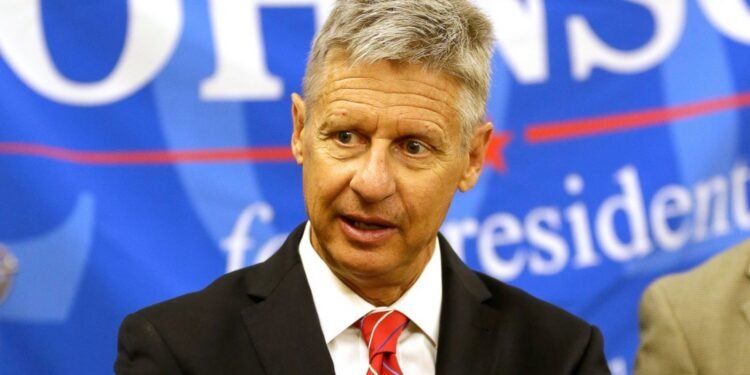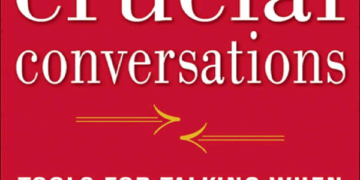Early Life and Education
Gary Earl Johnson was born on January 1, 1953, in Minot, North Dakota. Raised in a working-class family in Albuquerque, New Mexico, Johnson learned the values of hard work and self-reliance early on. His father was a public school teacher, and his mother worked in various administrative roles.
Johnson attended the University of New Mexico, where he earned a Bachelor of Science degree in Political Science. While in college, he displayed a strong entrepreneurial spirit, often taking up small jobs and exploring business opportunities.
Quick Bio: Gary Johnson
| Full Name | Gary Earl Johnson |
|---|---|
| Date of Birth | January 1, 1953 |
| Place of Birth | Minot, North Dakota, U.S. |
| Political Affiliation | Libertarian Party (formerly Republican) |
| Occupation | Politician, Businessman, Athlete |
| Education | University of New Mexico (B.S. in Political Science) |
| Notable Roles | Governor of New Mexico (1995–2003); Libertarian Presidential Candidate (2012, 2016) |
| Spouse | Dee Simms (m. 1977–2005, divorced) |
| Known For | Promoting limited government, personal liberty, and non-interventionist foreign policy |
Business Career and Entrepreneurial Success
In 1976, Johnson founded a construction company called Big J Enterprises. What started as a small, one-man operation quickly grew into a multimillion-dollar business. Big J Enterprises became one of the largest construction firms in New Mexico, employing over 1,000 people at its peak.
Under Johnson’s leadership, the company specialized in everything from commercial buildings to large-scale infrastructure projects. He eventually sold the business in 1999 for an undisclosed amount, securing his financial independence and allowing him to focus on public service.

Political Rise: Governor of New Mexico
Gary Johnson entered politics as a Republican and made his first political move by running for Governor of New Mexico in 1994. Running on a platform of fiscal responsibility, limited government, and personal liberty, he won the election despite being a political outsider.
First Term (1995–1999)
During his first term, Johnson made waves by using his veto power extensively—earning him the nickname “Governor Veto.” He vetoed over 750 bills in his first term alone, more than all 49 other governors combined. He viewed many of these bills as examples of government overreach or unnecessary spending.
Johnson also emphasized privatization, school choice, and criminal justice reform. His push for education vouchers and tax cuts won him praise from libertarian and conservative circles.
Second Term (1999–2003)
Johnson was re-elected in 1998 with a comfortable margin. In his second term, he became one of the first high-profile elected officials to advocate for the legalization of marijuana, a controversial stance at the time. He argued that the War on Drugs was failing and that decriminalization would reduce crime and save taxpayer money.
Despite opposition from both major parties, Johnson maintained high approval ratings and left office in 2003 with a reputation for integrity, consistency, and independent thinking.
Libertarian Party and Presidential Campaigns
After leaving the Republican Party, Johnson found a political home in the Libertarian Party, aligning with its principles of minimal government interference and individual liberty.
2012 Presidential Campaign
Gary Johnson first ran for President in 2012 as a Libertarian. His platform included:
- Ending foreign military interventions
- Balancing the federal budget
- Reducing government surveillance
- Legalizing marijuana nationwide
- Promoting civil liberties
Though he received just under 1% of the national vote, Johnson’s campaign significantly increased visibility for the Libertarian Party and helped grow its base.
2016 Presidential Campaign
Johnson returned as the Libertarian nominee in the 2016 U.S. Presidential Election, with Bill Weld as his running mate. In a political climate marked by dissatisfaction with both major parties’ nominees—Donald Trump and Hillary Clinton—Johnson gained traction among independent and moderate voters.
He appeared on all 50 state ballots and won over 4.4 million votes (3.27% of the national vote), making it the most successful Libertarian presidential run in history at the time.
Despite media gaffes—such as the infamous “What is Aleppo?” moment—Johnson’s candidacy helped legitimize third-party participation in national politics.
Core Political Beliefs and Policies
Gary Johnson’s political philosophy is rooted in libertarianism, emphasizing:
- Limited Government: Johnson believes that government should do only what is necessary—mainly national defense, protection of individual rights, and enforcement of contracts.
- Fiscal Conservatism: Advocates for balanced budgets, tax cuts, and reduced public spending.
- Social Liberalism: Supports same-sex marriage, marijuana legalization, and criminal justice reform.
- Non-Interventionist Foreign Policy: Opposes military intervention unless the U.S. is directly threatened.
- Individual Liberty: Strong proponent of personal choice in areas like healthcare, education, and drug use.
These views made him appealing to a wide range of voters, from disaffected conservatives to socially liberal independents.
Personal Life and Interests
Gary Johnson is an avid outdoorsman and athlete. He has competed in multiple Ironman triathlons and successfully climbed Mount Everest in 2003, just months after finishing his tenure as governor. He has also climbed the highest peaks on five continents, reflecting his passion for adventure and endurance.
Johnson married Dee Simms in 1977; the couple had two children before divorcing in 2005. He is known for living a relatively private and modest lifestyle, particularly compared to many career politicians.
Legacy and Impact
Gary Johnson’s legacy lies in his principled commitment to liberty and limited government. As a two-term governor and two-time presidential candidate, he proved that it is possible to achieve political success outside the traditional two-party system.
His 2016 campaign, in particular, marked a milestone for the Libertarian movement. It demonstrated that there is a growing appetite among American voters for alternative political voices—especially those that advocate for both fiscal responsibility and personal freedom.
In addition to influencing public policy debates—especially around marijuana reform and non-interventionist foreign policy—Johnson paved the way for future third-party candidates to be taken more seriously on the national stage.
In Popular Media and Public Perception
Though never a mainstream media darling, Johnson has remained a frequent guest on political talk shows, podcasts, and libertarian platforms. His common-sense, no-frills communication style has earned him a loyal following, even if some critics view him as occasionally too casual or underprepared for national campaigns.
Books, documentaries, and online content covering third-party politics often feature Johnson as a central figure due to his record-setting performance and principled stance.
Conclusion
Gary Johnson is a rare figure in modern American politics: an entrepreneur-turned-governor who rose to national prominence without sacrificing his beliefs. With a track record of reform, integrity, and independence, Johnson continues to inspire libertarians and political outsiders seeking alternatives to the mainstream political narrative.
While he may not have won the presidency, Gary Johnson’s influence on American politics is undeniable—challenging the status quo, broadening political discourse, and proving that individual liberty and limited government still resonate with millions of voters.






























